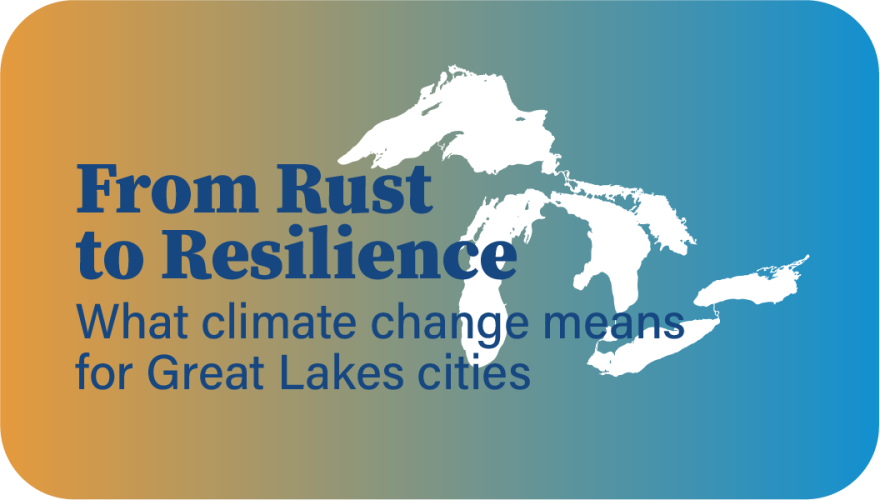The impact of climate change is vast: rising sea levels, climbing temperatures and more severe storms. These problems stretch beyond the coasts and grasslands, and cities along the Great Lakes are not immune.
Climate change brings serious health impacts, too.
Hotter weather means danger for residents who have allergies or trouble breathing. And as aging pipes struggle to handle runoff from more intense storms, they release dangerous toxins into the water. Meanwhile, mosquitos and ticks will thrive in hotter weather, carrying diseases with them.
"From Rust to Resillience," a collaborative reporting project led by the Institute for Nonprofit News, details these issues. Side Effects Public Media joined other newsrooms to explore how Great Lakes cities are scrambling to handle the public health impact of climate change. Some examples:
A Milwaukee, Wisconsin, community garden fueled by solar and rain runoff is used to educate and feed a low-income urban neighborhood.
The aging sewer infrastructure in many Great Lakes cities can't handle stormwater and sewage. As storms intensify, these systems push contaminated water into rivers and the lakes themselves. And that can lead to dangerous bacteria outbreaks along beaches.
As storms push agricultural fertilizer into streams leading to the Great Lakes, toxic algae blooms can contaminate municipal water systems. In one incident, about a half-million Toledo residents could not drink the city's water. Experts say that without intervention, this problem will worsen.
Climate change also will make heat waves more common, and Great Lakes cities are often unprepared for temperatures topping 90 degrees. In 1995, Chicago experienced a three-day heat wave and 700 people, mostly low-income and minorities, died. This is the story of how "weatherizing" homes can save lives.
Hear from the scientists and experts trying to address these issues.
Read all the stories in this project.
"From Rust to Resilience: What climate change means for Great Lakes cities” is a collaborative reporting project that includes six members of the Institute for Nonprofit News (Side Effects Public Media, Belt Magazine, The Conversation, Ensia, Great Lakes Now at Detroit Public Television, MinnPost) as well as , Indiana Public Broadcasting, WUWM, and The Water Main from American Public Media.
This story is part of the Pulitzer Center's nationwide Connected Coastlines reporting initiative.





